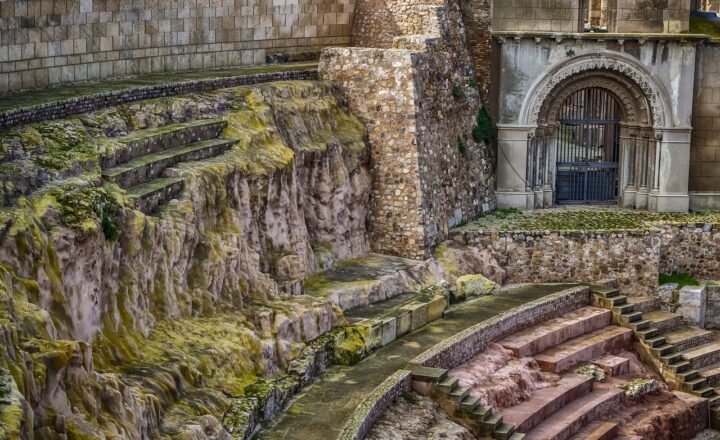Politics Through the Ages: Remarkable Changes in Global Governance
November 17, 2024

Politics has been the fundamental backbone of society since the dawn of civilization. From the ancient city-states of Mesopotamia to the modern democratic nations of today, governance has undergone dramatic transformations over the ages. This article will delve into the remarkable changes in global governance, exploring key political systems, ideologies, and events that have shaped the world we live in today.
1. The Birth of Political Systems: Ancient Civilizations
The roots of political governance can be traced back to ancient civilizations that established the earliest forms of political systems. The Sumerians in Mesopotamia developed some of the first known city-states, with centralized power and governance. These city-states, such as Ur and Uruk, practiced theocracy, where religious leaders wielded significant authority alongside political power.
Similarly, ancient Egypt’s pharaohs were both political and divine figures, underscoring the interconnectedness of religion and governance. This represented an early form of centralized government where laws were often seen as divinely ordained.
The political systems during these times laid the groundwork for future governance. The concept of citizenship began to emerge, with citizens having specific rights and responsibilities, distinguishing them from non-citizens and slaves.
2. The Classical Era: Democracy and Republics
The Classical Era heralded significant advancements in political thought. The Greek philosophers, including Plato and Aristotle, laid the intellectual foundations of democracy and republicanism. Ancient Athens is often hailed as the birthplace of democracy, where citizens could participate directly in decision-making processes.
Furthermore, the Roman Republic introduced a complex system that balanced power between different branches of government, including the Senate, magistrates, and popular assemblies. This system emphasized checks and balances, greatly influencing modern political architecture.
Additionally, the contributions of philosophers and political theorists such as Cicero helped shape thoughts on natural rights and governance that would resonate throughout history.
3. The Age of Empires: Absolute Monarchies and Colonialism
As empires expanded through conquest and colonization, governance increasingly shifted towards absolute monarchies. In Europe, kings and queens centralized power, ruling with divine right theories that asserted their authority was sanctioned by God.
The Ottoman Empire, Ming Dynasty, and British Empire represented vast territories governed by monarchical systems, wherein subjects had limited influence over their rulers. This era also saw significant colonialism, where European powers exerted control over vast swathes of Africa, Asia, and the Americas, often disregarding indigenous governance structures.
The Enlightenment period sparked thoughts about governance and rights, giving rise to social contracts and popular sovereignty—concepts that began to unravel the fabric of absolute rule as citizens began to seek a say in governance.
4. Revolutions and the Rise of Democratic Ideals
The late 18th and early 19th centuries marked a pivotal point in global governance with a series of revolutions that championed democratic ideals. The American Revolution (1775-1783) was a catalyst, leading to the establishment of a republic based on the principles of democracy, freedom, and representation.
The French Revolution (1789-1799) further demonstrated the power of popular unrest, loudly proclaiming liberty, equality, and fraternity. These revolutions not only reshaped their respective nations but also inspired numerous independence movements across Latin America and beyond.
These events led to the development of constitutional frameworks intended to protect individual rights and promote political participation, marking a transition from monarchical rule to representative government.
5. The 20th Century: The Birth of Modern Governance
The 20th century was a period of great political upheaval and transformation. The aftermath of World War I saw the rise of new political ideologies, including communism and fascism, drastically affecting governance styles around the world.
The establishment of the League of Nations after the Great War aimed to foster international cooperation and prevent conflicts. However, its failure to prevent the outbreak of World War II led to its dissolution and the creation of the United Nations in 1945—a hallmark of modern global governance focusing on peace, security, and human rights.
The post-war period also saw the widespread adoption of democratic governance, particularly in Europe and parts of Asia and Africa. Anti-colonial movements led to the establishment of numerous sovereign nations, transforming geopolitics.
6. The Contemporary Era: Challenges and Innovations
Today, we see a complex landscape of governance characterized by both democratic regimes and authoritarian governments. Globalization has made political realities interconnected; economic interdependence and international organizations play pivotal roles in governance.
The resurgence of nationalist movements and populism challenges established political norms, with leaders often rejecting international agreements in favor of national interests. Movements advocating for climate action, social justice, and digital rights shape contemporary governance at local and global levels.
Technological advancements have also transformed political engagement; social media platforms enable quicker dissemination of information and mobilization of movements. However, these advances come with concerns about misinformation and privacy, complicating the relationship between technology and democracy.
7. The Future of Global Governance
Looking ahead, global governance faces pivotal challenges, such as climate change, economic inequality, and the rise of artificial intelligence. Cooperation among nations will be crucial to devising effective solutions. The increasing relevance of international organizations, such as the United Nations and the European Union, plays a crucial role in addressing these challenges.
As societies evolve, so too will the frameworks of governance. Embracing democratic principles while ensuring transparency, accountability, and citizen engagement will be essential in shaping the future of political governance. The political landscape is ever-changing, and understanding our past lays the groundwork for navigating the future.
Conclusion
Politics, as a dynamic force, reflects society’s changing values, needs, and aspirations. The journey from ancient theocracies to modern democratic republics illustrates the remarkable evolution of governance. By examining political changes through the ages, we gain insights into our present and the path we must tread into the future.
To effectively navigate these complexities, fostering political engagement, understanding global interconnections, and upholding democratic values will be vital in creating a more equitable, just, and sustainable world.








